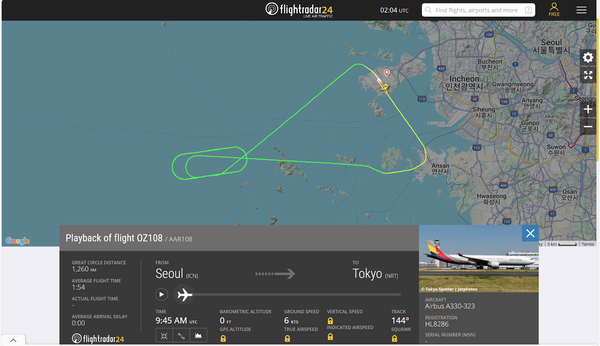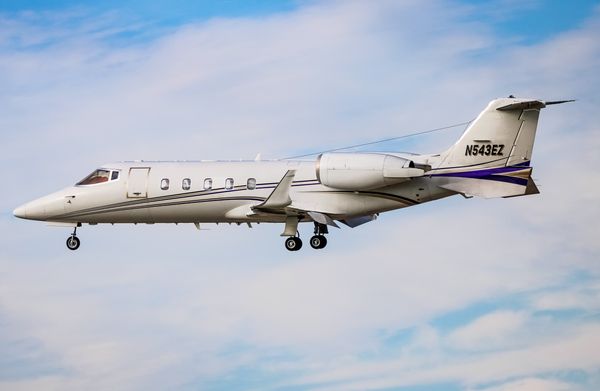On February 23, Delta Air Lines urged the U.S. government to allow the carrier to continue its partnership with Aeroméxico. Ending the partnership would have forced Delta to cancel nearly two dozen routes, eventually having significant economic impacts. On January 26, the U.S. Department of Transportation (USDOT) "tentatively dismissed without prejudice" the agreement renewal.

Terminating the Agreement
If the partnership is broken, ten other routes could also experience smaller aircraft and fewer seats. USDOT said it had temporarily decided not to renew Delta's antitrust immunity agreement covering its partnership with Aeroméxico. It also cited radical changes at Mexico City International Airport (MEX).

Granting antitrust immunity to carriers in an alliance agreement eliminates the competition between these carriers in their non-stop overlaps, the routes where they primarily compete. Delta and Aeroméxico applied for the transborder joint venture in 2015. In 2016, The DOT approved the antitrust immunity required to form the joint venture.
However, this decision required withdrawing some slots in Mexico City (MEX) and New York (JFK). The airlines ultimately agreed and launched various new routes between the U.S. and Mexico while deciding prices jointly. As of October 2023, the joint venture announced an expansion of its codeshare program, planning to add 17 U.S. routes in 2024.

USDOT commented on the reason by noting that the Mexican government's actions "have removed the necessary precondition for the consideration of an antitrust immunity application or continuation of an existing immunized joint venture." The Mexican government recently relocated whole cargo operations from Benito Juarez International Airport (MEX) to airports out of Mexico City by the orders of DOT, lowering the airport's capacity over the past year and a half.
The government decided these actions were for renovation purposes at the airport, but "the Mexican government has more recently conceded that no such construction plans exist." Under current conditions, there would be no additional capacity at the airport. The agency said: "As such, there is no valid operational basis on which to undertake the already-enacted capacity reductions and no possibility of a new entry at Mexico City International Airport for the foreseeable future."

Delta commented on the situation as follows:
"Delta is deeply disappointed by the U.S. Department of Transportation's tentative decision to terminate its approval of Delta and Aeroméxico's procompetitive joint cooperation agreement. This unprecedented overreach by the DOT will cause significant harm to consumers traveling between U.S. and Mexico."
"Mexico is our country's second-largest trading partner and the Delta/Aeroméxico joint cooperation agreement, which is responsible for the launch of 15 routes between the U.S. and Mexico, has been critical to connecting communities and businesses in both countries, while generating substantial economic benefits for U.S. businesses. Delta will take all necessary steps to protect the millions of consumers that have benefitted from its strategic partnership to ensure the continued delivery of important benefits to consumers in the U.S. - Mexico market."
Comments (0)
Add Your Comment
SHARE
TAGS
NEWS Delta Air Lines Aeroméxico Partnership Government Politics MexicoRECENTLY PUBLISHED
 Tokyo-Bound Asiana Flight Experiences Engine Failure
An Asiana Airlines flight bound for Tokyo experienced an engine failure, prompting its return to Incheon International Airport.
NEWS
READ MORE »
Tokyo-Bound Asiana Flight Experiences Engine Failure
An Asiana Airlines flight bound for Tokyo experienced an engine failure, prompting its return to Incheon International Airport.
NEWS
READ MORE »
 Learjet Owned By Vince Neil Crashes Into Gulfstream Jet, 1 Fatality Confirmed
On February 10th, around 14:30 local time, a Learjet private jet aircraft crashed into another private jet after landing at Scottsdale Airport (SCF) in Arizona.
NEWS
READ MORE »
Learjet Owned By Vince Neil Crashes Into Gulfstream Jet, 1 Fatality Confirmed
On February 10th, around 14:30 local time, a Learjet private jet aircraft crashed into another private jet after landing at Scottsdale Airport (SCF) in Arizona.
NEWS
READ MORE »
 Seattle Plane Strike 2025: Japan Airlines and Delta Collision Raises Safety Concerns
Seattle-Tacoma International Airport saw a concerning incident on Wednesday morning when a Japan Airlines (JAL) plane clipped a parked Delta Air Lines jet while taxiing. Thankfully, no one was injured, but passengers described the collision as a frightening experience.
NEWS
READ MORE »
Seattle Plane Strike 2025: Japan Airlines and Delta Collision Raises Safety Concerns
Seattle-Tacoma International Airport saw a concerning incident on Wednesday morning when a Japan Airlines (JAL) plane clipped a parked Delta Air Lines jet while taxiing. Thankfully, no one was injured, but passengers described the collision as a frightening experience.
NEWS
READ MORE »



